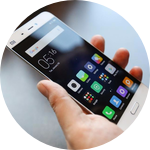About This Project
In contrary to the prevalence and complexity of mobile phone multitasking while learning, most of the current studies were self-reported and correlational. Few studies started to conduct experimental studies to find out the effect of mobile phone multitasking in real world classrooms (Chen & Yan, 2016). By using the meta-analysis technique, my study will be able to combine effects from these studies, evaluate the statistical significance of the summary effect and find a systematic answer.
Ask the Scientists
Join The DiscussionWhat is the context of this research?
Existing literature has demonstrated off-task multitasking with mobile phone is prevalent among learners nowadays through ringing of mobile phones, texting, and social networking while reading and attending lectures. Yet whether multitasking with mobile phones affect learning deserves a sophisticated rather than straightforward answer. We will arrive at different conclusions when taking into account characteristics of mobile phone activities, learning tasks, and learners. For instance, learning are more likely to be impaired when engaging in two similar tasks than in two unrelated tasks [e.g., taking lecture notes (verbal) and texting (verbal) versus taking lecture notes (verbal) and viewing a picture your friend texts you (visual)] (Wood et al., 2011).
What is the significance of this project?
Despite to the prevalence and complexity of this issue, there is no meta-analysis study to date. Given the availability of empirical studies, it is crucial to synthesis these findings in a systematic way to determine the direction, magnitude, and moderators of the causal relations between off-task multitasking with mobile phone and learning outcome so we can fully understand this issue and help learners to avoid potential multitasking distractions and develop effective multitasking skills in the modern society.
What are the goals of the project?
The hypotheses are proposed based on the theoretical framework and the review of literature. The goal of this project is to compare learners who multitask to those who don't and test which learner have greater retention, reading speed, reading comprehension, and what distractions had the largest effect on performance using meta-analysis techniques. The funds will be used to purchase the Comprehensive Meta-analysis software. By using this software, I will make five major steps to achieve the goal: collecting studies, collecting data from selected studies, calculating effect size for each outcome variable at study level, combining effect sizes across studies and testing moderators for each outcome variable, and diagnostics.
Budget
I compared four software which have the potential to do meta-analysis. For Excel, there is no built-in function to calculate effect sizes. Lakens (2013) developed an spreadsheet with prewritten formulas to calculate study-level effect sizes but it can't calculate effect sizes across studies. For R, the “rmeta” packages have been developed by Thomas Lumley. But I'm not proficient in R. For SAS, Wang and Bushman (1999) developed macros for fixed and random effect meta-analyses. I've modified it and run a pilot meta-analysis. The code became very sophisticated for sensitivity analysis or publication bias analysis. Therefore, Comprehensive Meta-analysis (CMA) 3.0 is the best software to use because (a) it is a very powerful software that designed to perform meta-analyses; (b) it allows for more than 2 moderators; and (c) it includes a wide array of sophisticated options for data analysis and display.
Endorsed by
Meet the Team
Quan Chen
As a digital native (Firat, 2013), I have some salient characteristic as my digital native peers: higher access speed, searching for instant pleasure, impatience in linear thinking, and most importantly, higher multitasking ability and continuous partial attention. I'm glad that I found the research topic that I have great passion on it during my doctoral studies in educational psychology. My research focuses on the impact of off-tasking multitasking with mobile phone on learning and driving. Three major reasons motivated me to study this topic: the prevalence of off-task mobile phone multitasking while learning, the complexity of this issue, and the urgency of understanding this issue. I also got a Master of Science degree in Biostatistics which equipped me with sophisticated statistical skills to conduct meta-analysis. I hope my studies can help learners (like me!) to avoid potential multitasking distractions and develop effective multitasking skills in the modern society.
Lab Notes
Nothing posted yet.
Additional Information
For detailed review, please see our published qualitative literature review.
Project Backers
- 0Backers
- 0%Funded
- $0Total Donations
- $0Average Donation


